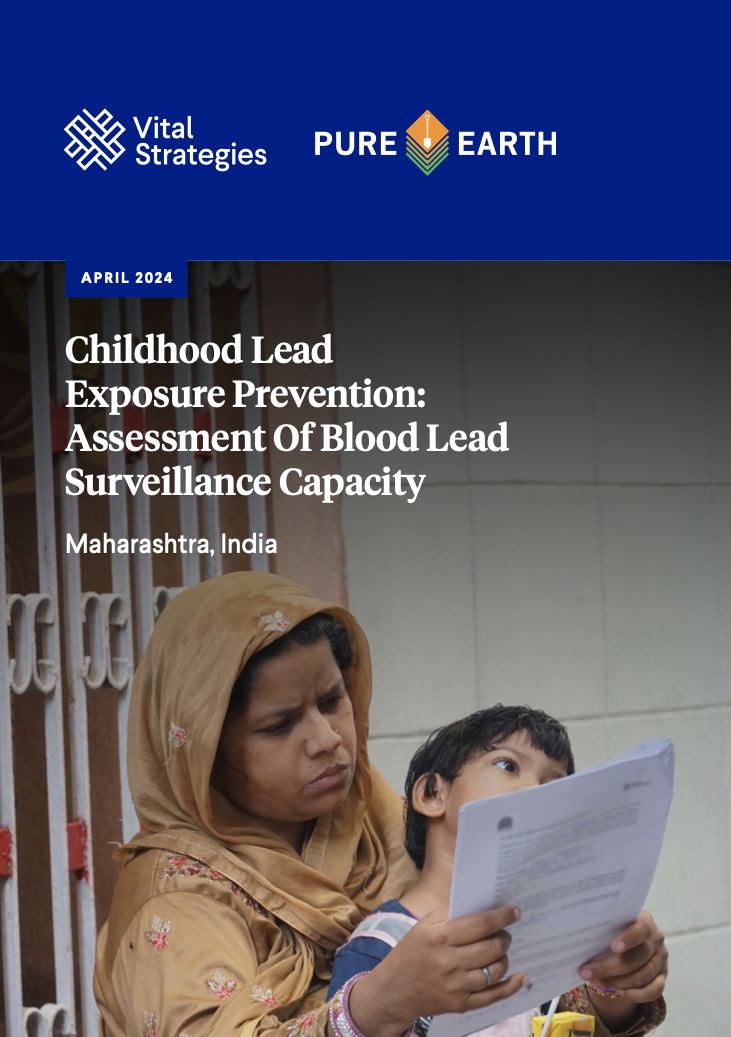In India, a recent National Institution for Transforming India (NITI) Aayog—Council of Scientific and Industrial Research (CSIR) report has highlighted the importance of establishing blood lead surveillance that can generate high-quality local data to help understand lead exposure and health burden among Indian children. This may be implemented effectively at the state level, starting in states including Maharashtra, where there is demonstrated government commitment to addressing environmental health issues. Statewide childhood blood lead surveillance typically involves monitoring blood lead levels (BLLs) among children and collecting other information that may indicate risks and sources of lead exposure.
As an essential step toward establishing such a system at the state level in Maharashtra, we conducted a capacity assessment to evaluate existing laboratory capacity and health system structure and provide recommendations for capacity strengthening and surveillance options best suited for Maharashtra. This capacity assessment report evaluated the policy landscape, public health infrastructure laboratory capacity to initiate and support a statewide childhood lead surveillance system, which will be fulfilled in close collaboration with the Public Health Department (PHD), Government of Maharashtra.
Recent Abstracts
Testimonials: Personal stories that have the power to save lives on the road
Knowledge, Attitudes, and Practice Study on Lead Poisoning and Pollution in Indonesia
Improving Civil Registration and Vital Statistics Systems in French-Speaking Countries: Opportunities and Challenges
Strengthening the Civil Registration and Vital Statistics (CRVS) System in Colombia
Estimation of the direct and indirect costs attributable to alcohol consumption in Brazil
Guidance for Collection and Processing of Cause-of-Death Data in the Civil Registration and…
Vital Strategies: Reimagine Public Health
Public perceptions of emissions testing in Jakarta, Indonesia
Cost-Benefit Analysis for Air Pollution Control Strategies in Jakarta
Key Messages on Alcohol Harms and Policy Solutions
